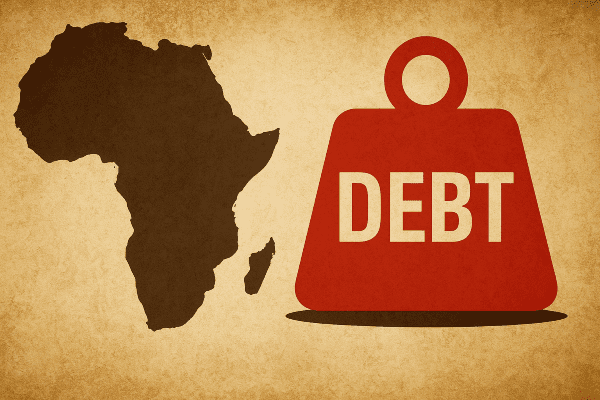Banking consultant Dr. Richmond Atuahene has challenged mounting calls for wholesale cancellation of Africa’s external debt, arguing that blanket write-offs would fail to address the continent’s underlying fiscal problems.
Dr. Atuahene, a prominent voice on Ghana’s economic challenges, contends that Africa’s debt crisis stems from poor investment decisions and weak fiscal discipline rather than excessive borrowing levels alone.
“Let me put it blunt: we (Africans) borrow and consume instead of investing in capital projects that can pay themselves back. So I disagree with the mentality that debts should simply be cancelled,” he stated in recent remarks.
His position contrasts sharply with advocacy groups demanding debt relief as reparative justice. The African Regional Organization of the International Trade Union Confederation (ITUC-Africa) and Ghana’s Trades Union Congress organized an August 29 rally in Accra calling for comprehensive debt cancellation.
Africa’s public debt reached $1.8 trillion in 2022, increasing by 183% since 2010 according to UN Trade and Development data. Developing countries globally spent a record $1.4 trillion servicing foreign debt in 2023, with interest payments surging nearly a third to $406 billion, World Bank figures show.
The debt burden has forced several African nations into restructuring agreements. Ghana and Zambia lead countries that have been compelled to renegotiate their external obligations under international frameworks designed to prevent defaults.
Dr. Atuahene argues that debt cancellation without structural reforms would create moral hazard and fail to prevent future crises. He advocates for strengthened fiscal discipline, productive investment alignment, and enhanced revenue mobilization strategies across African economies.
“African economies must shift from borrowing for consumption to borrowing for investment that drives growth and creates sustainable repayment capacity,” he emphasized.
The banking consultant has consistently warned about Ghana’s borrowing patterns. In April, he called for constitutional limits on government borrowing, describing Ghana’s economic situation as “disappointing” and warning of long-term consequences without corrective action.
International Monetary Fund data reveals Ghana as the fifth most-indebted African nation to the Fund, with outstanding credit at SDR 2.70 billion as of August 2025. Egypt leads with SDR 7.18 billion, followed by Côte d’Ivoire (SDR 3.10 billion), Kenya (SDR 3.02 billion), and South Africa (SDR 2.89 billion).
The debate reflects broader tensions between debt relief advocates and fiscal conservatives over Africa’s development financing. While activist groups frame debt cancellation as justice for historical exploitation and unfavorable loan conditions, economists like Dr. Atuahene stress institutional capacity building and prudent fiscal management.
“Successful debt stabilization requires measures to strengthen public finances and institutions, alongside pro-growth structural reforms and a sound macroeconomic environment,” according to recent IMF analysis on Africa’s debt challenges.
Dr. Atuahene’s stance underscores ongoing debates about sustainable solutions to Africa’s fiscal stress. His emphasis on structural reforms over debt relief reflects growing recognition that addressing borrowing patterns and institutional weaknesses may prove more effective than one-time debt write-offs.
The discussion occurs as African leaders prepare for international debt architecture discussions, where the continent seeks more favorable financing terms while maintaining access to development capital for infrastructure and economic transformation projects.

